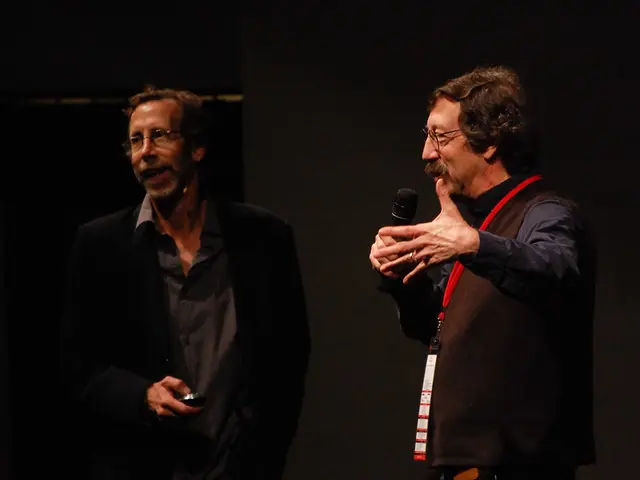Kazakh and Nigerian Leaders Prepared to Foster Collaboration
In a significant development, Kazakh President Kassym-Jomart Tokayev and Nigerian President Bola Ahmed Tinubu held talks on January 14, during the Abu Dhabi Sustainability Week (ADSW) Summit. The conversation between the two leaders covered a wide range of topics related to international affairs.
The focus of the discussion was on finding ways to further develop cooperation between Kazakhstan and Nigeria. The current state of bilateral cooperation is modest but growing, particularly in trade, with significant potential to expand in energy, agriculture, transport, and logistics sectors.
In the trade sector, Kazakhstan exported about $998k worth of mainly nitrogen fertilizers and excavation machinery to Nigeria in 2023, showing a strong annual growth rate of about 100% over five years. Nigeria’s exports to Kazakhstan were smaller, around $294k, including perfume plants, trailers, and machinery, with a 42% annual growth rate over the same period. Both countries have increasing trade volumes but still relatively low totals, indicating room for expansion.
While direct cooperation data is limited in recent sources, given Kazakhstan’s rich energy resources (especially oil and gas) and Nigeria’s status as Africa’s largest oil producer, there is strong potential for collaboration in energy technologies, sharing expertise, and possibly joint ventures. Both countries are increasingly active in international groupings like BRICS, which could facilitate deeper cooperation in energy and economic issues.
Kazakhstan’s exports of nitrogenous fertilizers to Nigeria highlight a farming-related trade link. There is potential for broader agricultural collaboration, for example, through fertilizer supply, technology transfer, and joint projects to enhance productivity in Nigeria’s large agricultural sector.
Although no direct large-scale bilateral projects are reported, Nigeria’s growing trade and Kazakhstan’s strategic position in Eurasian transport corridors suggest possible future cooperation in transport and logistics. Participation in international forums like BRICS and diplomatic engagements hint at building bridges that could lead to enhanced transport connectivity and logistics partnerships.
Tinubu confirmed his readiness to make joint efforts to bring bilateral relations between the two countries to a qualitatively new level. Tokayev expressed Kazakhstan's commitment to strengthening comprehensive cooperation with Nigeria and reiterated his invitation for Tinubu to pay an official visit to Kazakhstan. The meeting between the two leaders continued to emphasize the commitment of both countries to strengthening their relationship.
It's worth noting that Nigeria is Africa's most populated country and one of the largest economies on the African continent. The leaders noted the importance of intensifying interaction within multilateral structures, which could pave the way for stronger bilateral ties and mutual benefits in various sectors.
The Presidents discussed prospects for cooperation in the trade and economic, transport and logistics, energy, and agricultural sectors. However, no specific details about the topics discussed during the meeting or the outcomes and decisions made were provided. The meeting was photographed by Akorda, signifying the significance of the event.
In summary, while bilateral trade is currently modest, the annual growth and shared platforms like BRICS indicate strong potential for expanded cooperation across trade, energy, agriculture, and transport sectors. Strategic investments and governmental initiatives could accelerate this process, further strengthening the relationship between Kazakhstan and Nigeria.








